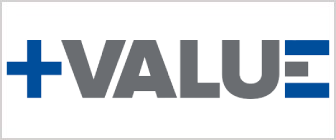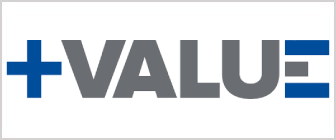In the current business environment, where technological sophistication and knowledge specialization are key to competitiveness, companies are increasingly turning to external services from international experts. In this context, the correct qualification of the services contracted with non-domiciled companies under the income tax regime acquires special relevance to guarantee an adequate tax compliance and avoid unnecessary contingencies.
The legal framework in force in Peru, particularly Article 6 of the Unified Text of the Income Tax Law (DS N° 179-2004-EF), establishes that non-domiciled taxpayers are only subject to tax on their income from Peruvian sources. In turn, paragraphs b), e) and j) of article 9 of said law are categorical in stating that income originated in the economic use in the country of royalties, in civil or commercial activities carried out in Peru, and in the provision of technical assistance, respectively, qualify as such.
The law also imposes, through article 76, the obligation to withhold tax definitively when payments are made to non-domiciled persons for Peruvian source income. This includes, under article 56, the application of a 15% rate for duly supported technical assistance and 30% for other income not included in such category. This difference in rates not only has financial implications for the companies, but also requires an adequate qualification of the contracted services.
The Income Tax Law Regulations and the administrative doctrine have developed a clear and restrictive definition of what should be understood by technical assistance. According to article 4-A of the Regulations, technical assistance implies the application of non-patentable specialized knowledge necessary for the productive, commercial or service process of the user. In other words, it is not a mere delivery of results or generic information, but a transmission of knowledge that can be replicated by the user, allowing him to continue with the activity by himself.
This criteria has been repeatedly endorsed by the Tax Court, which has pointed out that technical assistance requires three concurrent conditions:
- The existence of an obligation to do on the part of the service provider (i.e., it is not sufficient to deliver a product or report).
- The transmission of non-patentable know-how, allowing the user to use it directly without future assistance from the provider.
- The necessity of the transmitted knowledge for the user's income-generating activity, i.e., its essential character in the process of generating economic value.
This last point has been clarified by the Tax Administration itself, which in Report No. 158-2019-SUNAT/7T0000, stated that the term “necessary” should be understood as that which is indispensably needed for something, it being understood that, without technical assistance, the activity may be developed, but without the expected efficiency and productivity.
In practice, if a Peruvian company hires a foreign supplier to assist it in the implementation of a new production line, such operation may qualify as technical assistance provided that certain requirements are met. For example, if the service includes not only the delivery of a report or recommendations, but also the supplier's active participation in technical meetings, training of the local team, and the transmission of methodologies that allow the company to directly apply this knowledge in the operation and optimization of the new production line, this would be a true technical assistance service.
In this case, the knowledge transmitted is essential for the company to be able to start up the new production line efficiently and under adequate technical criteria. Furthermore, the fact that the user can replicate or take advantage of this knowledge autonomously in the future, without depending again on the supplier, reinforces this qualification. Therefore, the company would be entitled to apply the reduced rate of 15% income tax withholding, as long as it has the supporting technical report, as required by law.
On the other hand, if the supplier simply delivers a report with general recommendations without getting involved in the process or providing specific tools or methodologies that the company can use later, we would not be dealing with technical assistance. In this case, the payment would be taxed at the rate of 30%, since it does not comply with the criteria established by the Regulation and the administrative doctrine.
In addition, the standard provides that if a service includes multiple benefits (e.g., technical assistance and digital services), the amounts corresponding to each component must be clearly identified. If this is not possible, the predominant nature of the operation must be considered. At this point, the way in which the contract is structured, the detail of the activities, and the supporting documentation generated become important. An ambiguous wording or a lack of clear separation between the services rendered may trigger a reassessment of the tax classification by SUNAT.
In the specific case of engineering services, for example, these are only considered technical assistance if they refer to activities expressly listed in the regulations, such as installation and start-up of equipment, maintenance, calibration or quality control. The execution of these services outside the list, such as conceptual design or general supervision of work, do not automatically qualify as technical assistance, and therefore do not benefit from the reduced rate of 15%.
From a practical perspective, companies should carefully review their contracts with foreign suppliers and assess whether the services actually meet the regulatory requirements to qualify as technical assistance. This includes:
- Analyzing the nature of the service: is there an obligation to do; is non-patentable knowledge being transmitted?
- Assessing the impact on the operation: Is the service essential for the development of the user's activity?
- Review the contract and invoicing: Is each component of the service discriminated? Can the technical nature of the transmitted knowledge be documented?
In summary, the tax approach to technical assistance is not only a matter of form, but above all of substance. It involves understanding the purpose of the service, its operational relevance, and the way in which the knowledge is transmitted to the user. This is the only way to adequately determine the applicable tax treatment and avoid contingencies that, due to lack of clarity or documentation, can be costly.
In times of increased tax scrutiny and tax pressure, good tax planning begins with a correct qualification of services. Technical assistance is not a label to be placed on an invoice: it is a rigorously defined tax category, which must be accredited with facts, contracts and measurable results.
By Martín Ramos


